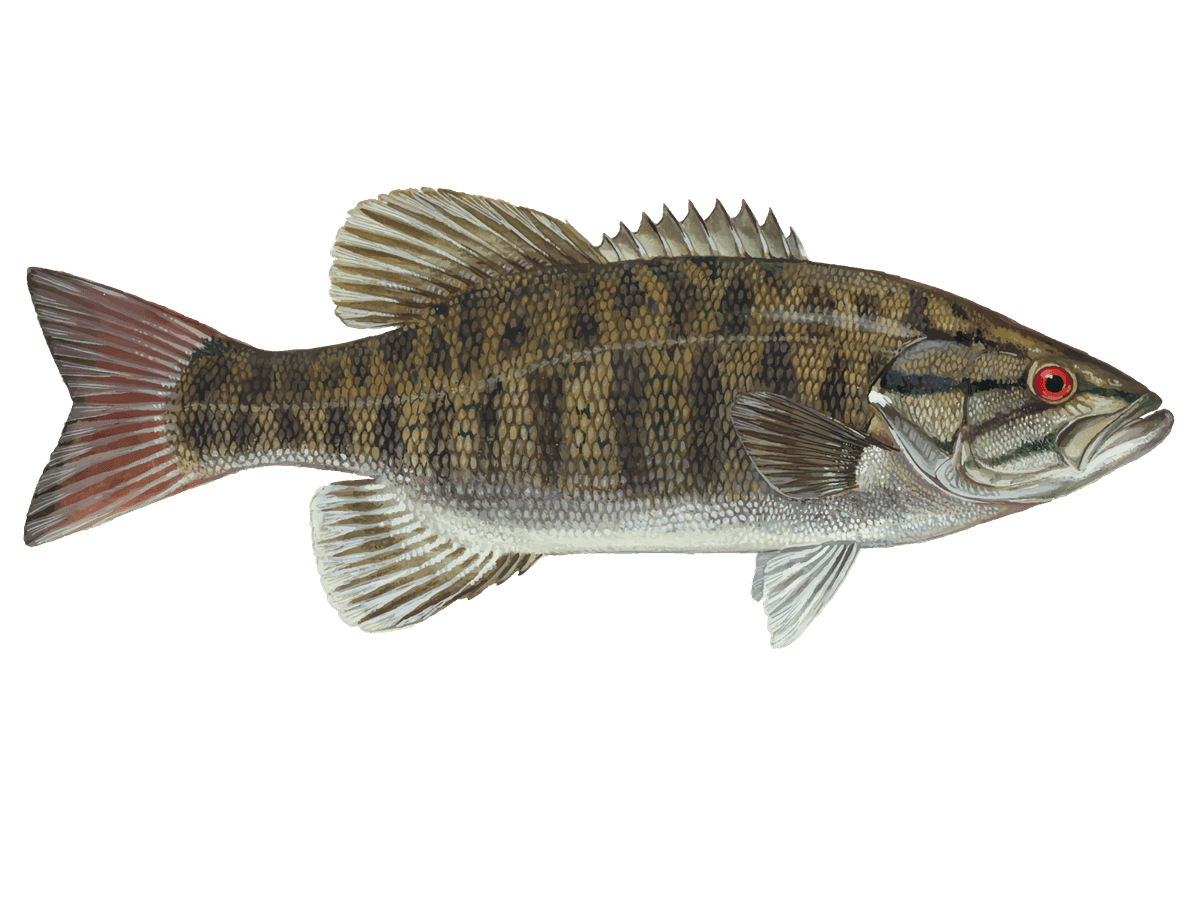Elite Susquehanna River Bass Fishing Adventure
- Published Date: August 19, 2025
- Fishing
- Pennsylvania
Summary
%2F%2Fusers%2F3af17a5a-80e5-4a5d-a2a1-c6b10668ea98%2Fratecard%2Fheavyweight-largemouth-bass-caught-2477.jpeg&w=1200&q=75)
Susquehanna Smallmouth Action
Smallmouth Smackdown on the Susquehanna
Get ready to tangle with some of the meanest, hardest-fighting bass in the Northeast on this full-day advanced smallmouth trip. We're talking about the Susquehanna River - a legendary fishery that's produced more trophy bronzebacks than you can shake a rod at. Captain Cole from Cole's Catch is your ticket to unlocking this river's potential, with years of experience dialing in on the habits of these aggressive predators. This ain't no beginner's float - we're talking precision casting, finesse techniques, and the kind of strategy that turns good days into epic ones. Pack your A-game and your Pennsylvania fishing license, because these Susquehanna smallies don't play nice.
What to Expect on the Water
Strap in for a full 8 hours of non-stop bass action. We'll be covering serious water, hitting prime stretches that Captain Cole's scouted out. This is light tackle territory - leave the broomsticks at home and get ready for some sensitivity training. We're talking drop shots, ned rigs, maybe even some topwater if the conditions are right. The Susquehanna's known for its rocky structure and current seams, so expect to work those eddies and pocket water like a pro. Water levels can make or break a trip here, but don't sweat it - Cole's always got a Plan B (and C and D) to keep you on the fish.
Techniques That'll Up Your Game
This ain't your grandpa's worm dunking. We're going surgical with our approach. Expect to fine-tune your presentations based on the mood of the fish and the ever-changing river conditions. We might start with finesse plastics, working those deep holes where the big boys like to hide. As the day heats up, don't be surprised if we switch to reaction baits - maybe some spinnerbaits or jerkbaits to trigger those aggressive strikes. And if you've never tried "river reading" before, get ready for a crash course. Knowing where those smallies are likely to set up shop is half the battle, and Cole's got that dialed in like nobody's business.
Target Species Breakdown
Smallmouth Bass: The stars of the show, Susquehanna smallies are a different breed. These river-bred bruisers average 2-3 pounds, but don't be shocked if you tangle with a 5+ pounder. They're known for their acrobatics - expect some serious topwater blowups and line-stripping runs. Spring and fall are prime time, but summer can be lights out if you know where to look. These fish relate heavily to current breaks, so we'll be targeting boulders, ledges, and any structure that gives them a place to ambush prey. The fight of a Susquehanna smallmouth is something every serious bass angler needs to experience - it's like hooking into a brown torpedo with an attitude problem.
Why Anglers Keep Coming Back
Look, there's a reason the Susquehanna's got a reputation as a world-class smallmouth fishery. It's not just about the numbers (though trust me, you'll get your fix). It's about the quality of these fish and the challenge they present. This river's got a way of humbling even the most seasoned anglers, but man, when you dial it in - it's pure magic. You'll be picking apart structure, reading water, and making the kind of casts that separate the weekend warriors from the real deal. And let's not forget the scenery - the Susquehanna's got some seriously picturesque stretches that'll have you forgetting all about your day job.
Top Catches This Season
While every day on the water's different, we've been seeing some absolute pigs come to the boat lately. Last week, we had a client boat a 22-inch smallie that probably pushed 6 pounds - a true river monster. Topwater action's been insane in the early mornings, with some aggressive schooling activity that'll test your hookset reflexes. The key's been finding those deeper holes adjacent to fast water - that's where the big boys have been stacked up. And don't sleep on the mid-river structure - we've been crushing them on tube jigs around isolated boulders.
Time to Book Your Spot
If you're still reading this, chances are you're already imagining yourself battling bronzebacks on one of the Northeast's premier rivers. This full-day trip with Captain Cole is your ticket to leveling up your smallmouth game in a big way. Whether you're looking to crack the code on river fishing or just want to experience some of the best bass action the Susquehanna has to offer, this is the trip for you. Spots fill up fast, especially during prime seasons, so don't sleep on this opportunity. Grab your gear, secure your license, and let's get after some trophy smallies. The Susquehanna's calling - time to answer!
Learn more about the species
Smallmouth Bass
Smallmouth Bass (Micropterus Dolomieu) Description
Smallmouth Bass belongs to the Sunfish family (Centrarchidae) and is a popular freshwater fish among anglers. Smallmouth Bass has a dark green or black color body, with vertical dark brown stripes that usually fade with age, and the color contrast may vary depending on the fish’s habitat. Their eyes are red or brown. They have two dorsal fins; the front one has 10 fin spines while the other has 10 to 15 soft rays.

Female Smallmouth bass are usually larger in size than males. The average size of smallmouth bass can be 18–20 inches. On average, they usually live only 5 to 6 years but can survive up to 15 years. Smallmouth bass found in lakes are larger than those found in streams and ponds. Females usually weigh from three to six pounds, while the males are around 2 pounds.
Smallmouth Bass Habitat

This bass species can be found in clear waters, such as ponds, lakes, and rivers. They prefer rubble and rocky bottoms. Smallmouth bass also prefer moderate temperatures, and they will swim deeper in the cooler water during summer.
Spawning
Smallmouth Bass spawn March-May when water temperatures reach between 59 and 64 degrees. The males build nests in the shallow waters of lakes and rivers. The nest is built building within 150 yards of where the male built his nest the previous year.
Diet
The Smallmouth Bass eats small fish, crayfish, and insects. They hide behind a fallen tree or a rock and attack when the prey is near.
Fishing Techniques - How to Catch Smallmouth Bass
A light breeze and calm waters are best suited to catch Smallmouth Bass. In spring and fall, they like to swim in open waters during bright days and warm temperatures. In summer, they swim deep under cooler water and are harder to find. It is best to fish for Smallmouth early morning or late evening.
Smallmouth bass are fighters. A spinning rod of light to medium action with a 6 to 10 pounds test line is recommended.
There are plenty of baits and lures that work successfully to catch these fish; insects, jigs, minnows, plugs, plastic worms, spoons and night crawlers. A favorite of anglers is to use spinning baits that when rigged weightless, can hang on top of the water. When the fish are in deeper water during the summer, use a rig with a weighted vertical drop hook.
Fly-fishing Smallmouth Bass is popular due to their abundance and strength. When you want to cast into deeper water, use a 6, 7 or 8 weight rod. This will be suitable for strong winds, landing larger fish, and a long cast. A longer rod, 81/2- to 9-foot, is good when you need accuracy for casting near shoreline structures or long-distance casting.
Is Smallmouth Bass Good to Eat
Smallmouth bass have a firm filet with a mild, yet distinct flavor that pairs perfectly with a variety of seasonings and cooking methods. So whether you prefer grilling, frying, or baking your catch, smallmouth bass is a tasty and versatile option that you won't want to miss out on. What's more, smallmouth bass are a healthy food option, as they are excellent sources of protein and Omega-3 fatty acids.
With any freshwater fish, you need to be mindful of the water you are fishing. Make sure if you are eating your catch, the water is clean and be aware that freshwater fish should always be cooked.

%2Ffit-in%2F250x250%2Fguide_websites%2F13445%2Fimages%2F1708815073862image-2024-02-25t065109.911.png&w=1200&q=100)


%2Ffilters%3Aformat(webp)%2Fusers%2F3af17a5a-80e5-4a5d-a2a1-c6b10668ea98%2Fimages%2Fflorida-bass-fishing-pa-2463.png&w=768&q=75)
%2Ffilters%3Aformat(webp)%2Fusers%2F3af17a5a-80e5-4a5d-a2a1-c6b10668ea98%2Fimages%2Ffishing-adventure-pennsylvania-2422.png&w=768&q=75)
%2Ffilters%3Aformat(webp)%2Fusers%2F3af17a5a-80e5-4a5d-a2a1-c6b10668ea98%2Fimages%2Ffishing-trip-pennsylvania-2634.png&w=768&q=75)
%2Ffilters%3Aformat(webp)%2Fusers%2F3af17a5a-80e5-4a5d-a2a1-c6b10668ea98%2Fimages%2Fhummels-wharf-largemouth-bass-2433.png&w=768&q=75)
%2Ffilters%3Aformat(webp)%2Fusers%2F3af17a5a-80e5-4a5d-a2a1-c6b10668ea98%2Fimages%2Ffishing-adventure-pa-2508.png&w=768&q=75)
%2Ffilters%3Aformat(webp)%2Fusers%2F3af17a5a-80e5-4a5d-a2a1-c6b10668ea98%2Fimages%2Fbest-great-24-inch-fishing-2532.png&w=768&q=75)
%2Ffilters%3Aformat(webp)%2Fusers%2F3af17a5a-80e5-4a5d-a2a1-c6b10668ea98%2Fimages%2Ffishing-hummels-wharf-2696.png&w=768&q=75)
%2Ffilters%3Aformat(webp)%2Fusers%2F3af17a5a-80e5-4a5d-a2a1-c6b10668ea98%2Fimages%2Fscenic-fishing-hummels-wharf-2627.png&w=768&q=75)
%2Ffilters%3Aformat(webp)%2Fusers%2F3af17a5a-80e5-4a5d-a2a1-c6b10668ea98%2Fimages%2Ftautog-triumph-pa-2633.png&w=768&q=75)
%2Ffilters%3Aformat(webp)%2Fusers%2F3af17a5a-80e5-4a5d-a2a1-c6b10668ea98%2Fimages%2Fpeaceful-fishing-hummels-wharf-2510.png&w=768&q=75)
